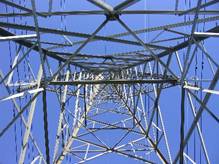Tradeable pollution rights
Like the use of taxes and subsidies, tradeable pollution rights (otherwise known as tradeable emission allowances or permits), represent another market-based solution to the problem of negative externalities, in particular pollution. They were first introduced in the USA in 1990 under the Clean Air Act in which the Environmental Protection Agency set a target rate of reduction for power stations' emissions of sulphur dioxide. Initially, power stations were issued with emission permits in proportion to their current pollution levels and were allowed to discharge pollution into the air up to a specified limit. Thereafter, those power stations for whom the cost of reducing pollution was low, could sell their spare pollution permits to generators for whom the cost of pollution abatement, through the installation of appropriate equipment, would be very high. Thus, a market in tradeable pollution rights is created, stimulating pollution reduction through the possibility of making money out of selling surplus permits.

Tradeable pollution rights
Tradeable pollution rights are emission allowances or permits which can be traded between organisations whose operations generate pollution.
 The main argument in favour of such a scheme is that it operates through the market via the price system: firms are given a profit incentive, i.e. through the right to sell spare permits, to find cheap ways of reducing their pollution levels; and such a system should be administratively cheap and simple to implement , as the regulatory agency need have no information regarding firms' costs - it simply has to issue the permits and arrange for their sale; in addition, consumers may benefit if the extra profits made by low pollution power stations, arising from the sale of their spare permits to other companies, are passed on in the form of lower prices.
The main argument in favour of such a scheme is that it operates through the market via the price system: firms are given a profit incentive, i.e. through the right to sell spare permits, to find cheap ways of reducing their pollution levels; and such a system should be administratively cheap and simple to implement , as the regulatory agency need have no information regarding firms' costs - it simply has to issue the permits and arrange for their sale; in addition, consumers may benefit if the extra profits made by low pollution power stations, arising from the sale of their spare permits to other companies, are passed on in the form of lower prices.
The main argument against the use of tradeable emission permits is that they do not actually stop firms from polluting the environment; they only provide an incentive to so - where a degree of monopoly power and relatively inelastic demand exist, the extra cost of purchasing additional permits so as to further pollute the atmosphere, could easily be offset by the possibility of charging consumers higher prices; moreover, the system of allocating permits in accordance to existing emission levels could be seen as a reward for the greatest polluters!

To get some up to date examples on tradeable permits, try searching the Biz/ed In the News archive. You can do this in the window below.
